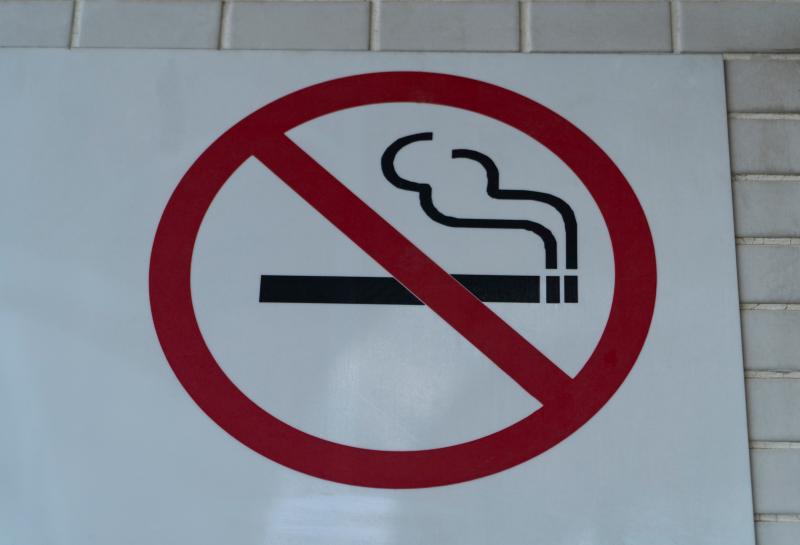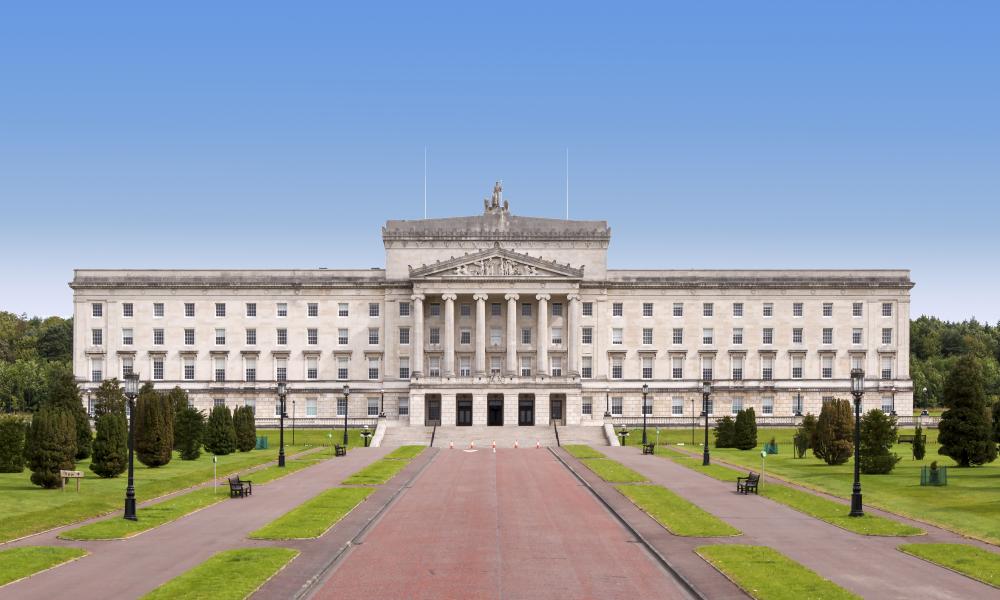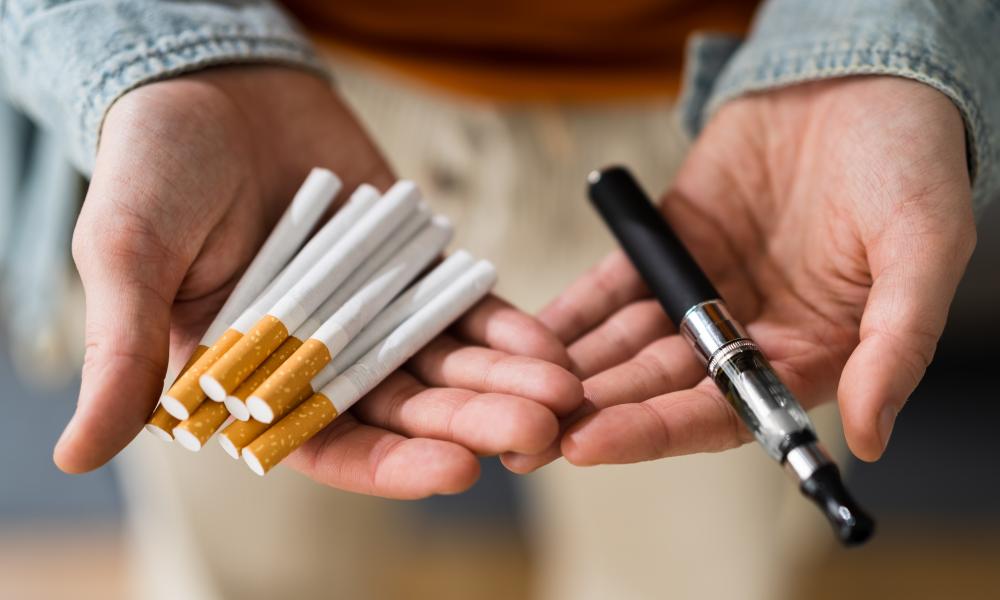

On the 20th anniversary of the World Health Organization Framework Convention on Tobacco Control, IPH Director of Policy Dr Helen McAvoy reflects on tobacco industry interference in policy making – what we know and what can be done in the future.
The corporate playbook
The term gaslighting has its origins in a 1944 film, Gaslight, starring Ingrid Bergman. Through a series of mean-spirited, manipulative, and deliberately perpetrated acts, she comes to disbelieve her own reality. She doubts her own lived experience, her common sense, and her ability to make a sound judgement. Put simply, gaslighting is an effective way of obscuring people from seeing obvious truths.
Today, the term is applicable in the domain of politics and policy. It is evident in tobacco industry efforts to influence how their products are regulated.
Gaslighting provokes uncertainty and doubt. These are well-worn and highly effective tactics from the tobacco industry ‘corporate playbook’. They seek to act on the thoughts and confidence of decision-makers to delay, derail, or delegitimise the regulation of tobacco products.
More recently, the industry has added greenwashing to its playbook of tactics, by jumping on the environmental bandwagon in a bid to obscure the real environmental impact of tobacco and e-cigarettes.
The truths that lobbyists seek to obscure
Staying on the gaslighting theme, what truths does the tobacco industry seek to obscure?
Here are some facts that make for uncomfortable truths for the industry:
- That restrictions on the affordability, accessibility, addictiveness and appeal of tobacco products are effective - Ireland has made progress but there is plenty of scope to expand the range of evidence-based regulatory measures.
- That most people in Ireland, including people who smoke, want to see the government introduce more ambitious tobacco endgame measures than are currently in place. Three quarters of the Irish population think the government should do more to protect the public from tobacco-related harm and even more believe that tobacco products should be more tightly regulated.
- That estimates of illicit tobacco produced by the industry are generally overblown and are designed to put the chill-factor on the adoption of progressive pricing measures.
That tobacco is a major contributor to the destruction of Ireland’s natural environment and the health of our planet. This cannot be solved with window dressing corporate responsibility initiatives. Filters in tobacco products are single use plastics with no proven health benefit, yet the success of greenwashing means their environmental impact tends to evade appropriate regulation.
Industry activity in low and middle income countries is a real concern. One 2022 study highlighted tobacco industry interference in plans to roll out graphic health warnings on tobacco products in Bangladesh. This example shows that interference is most likely in countries with the most fragile health and environmental systems and with the least capacity to respond to tobacco-related harms.
The tobacco industry did not hold back either during the COVID-19 pandemic when concerted efforts were made to re-establish connections with policy makers and legislators through corporate social responsibility - largely in the form of donations of equipment or cash.
Closer to home, tobacco industry interference in public policy development is not a thing of the past, unfortunately. In recent weeks, the European Ombudsman concluded that the European Commission had failed to be transparent about its meetings with tobacco industry representatives. Emily O’Reilly is actively pursuing this issue and I hope that her push for greater transparency at the European level will be successful.
But what about Ireland?
This week the Minister for Health received government approval to bring forward the Public Health (Tobacco Products and Nicotine Inhaling Products) Bill for enactment. This legislation will bring Ireland in line with the UK, in prohibiting the sale of e-cigarettes to under 18s and banning self-service vending machines. The Bill will introduce a licensing system for the sale of tobacco and e-cigarettes, which will provide important infrastructure for enforcement and for future regulatory measures.
Ireland signed the World Health Organization Framework Convention on Tobacco Control (FCTC) in 2006. This means that Ireland has committed to reducing tobacco use and, under Article 5.3, addressing tobacco industry interference in policy.
So, almost two decades on, how well is public policy protected from tobacco industry interference?
Let’s go back 10 years to 2013 when Senator John Crown, a professor and oncologist, proposed a Protection of the Public Interest from Tobacco Lobbying Bill. This Bill was ultimately rejected, principally on the grounds that a new Lobbying Act was under development and would sort it all out.
Two years later a new Lobbying Act was indeed enacted. The Act required that industry lobbyists declare their activity on an open access Lobbying Register. It failed, however, to make any specific provisions to support compliance with the FCTC – for example there were no additional reporting or transparency requirements for the tobacco industry.
Since 2015, the Lobbying Register has provided a snapshot of tobacco industry approaches to policy makers, but it tells us little about whether these approaches were entertained.
There are other sources of information too, including responses to questions in the Oireachtas and documents released through Freedom of Information requests.
All of this makes for a portfolio worthy of in-depth analysis but, to my knowledge, no such analysis has ever been conducted. Curiously, Ireland is also not included within the Global Tobacco Industry Interference Index.
At a glance, ‘Big Tobacco’ firms and their various affiliates are very active. Since 2016, tobacco firms, retailers or PR companies acting on their behalf, made at least 180 direct representations to politicians or government officials, with 35 lobbying returns registered in 2022 alone.
The register also shows lobbying activity by e-cigarette companies, largely owned by tobacco manufacturers. One such company to feature is JUUL, who made headlines recently for making a substantial settlement in the US for unlawfully marketing addictive products to minors.
The last word on voices for change
Smoking kills one in two of its users. Tobacco disfigures, disables and impoverishes people. Stigma, poverty and mental ill health can mean that people experiencing tobacco-harms are vulnerable and that patient advocacy is fragmented.
To maintain the status quo, the tobacco industry continues to ply the narrative of personal responsibility, freedom of choice and tobacco addiction as a failure of personal gumption when, in reality, it is a failure of policy.
The power differential between those experiencing tobacco harm and the large tobacco corporations is simply enormous.
The first customers of the industry (children) do not have political ‘access’ or slick communications companies acting on their behalf. Living with tobacco related disease can be difficult emotionally and socially as well as physically. People with tobacco-related cancers are generally under-represented in media narratives on cancer; and patients themselves can struggle with stigma, which is associated with delayed help-seeking and worse outcomes.
This is why Ireland needs to revisit compliance with Article 5.3 of the FCTC. The goal of Tobacco Free Ireland, to reduce smoking rates to less than 5% by 2025, will not be met. Other countries are moving forward with clearly defined measures to achieve a tobacco endgame.
To secure the political buy-in and commitment to realise our tobacco endgame ambitions in Ireland, we need to think carefully about how to change which voices policy-makers get to hear.
On that note, I’m going to leave the last word with Gerry Collins, who died from tobacco-related lung cancer in 2014. Before his death, Gerry generously shared his story and encouraged other smokers to quit. He left a lasting legacy, and today on World No Tobacco Day, his message remains as powerful, empowering and relevant as it did then.
Support Services
If you, or a loved one, require help to quit smoking, the following support and information is available:
Ireland: Quit.ie
Northern Ireland: - Stop Smoking NI
Supports for cancer patients are also available.


